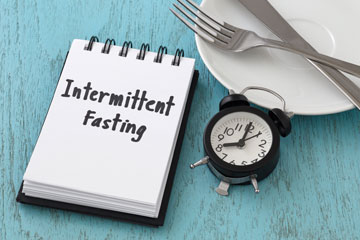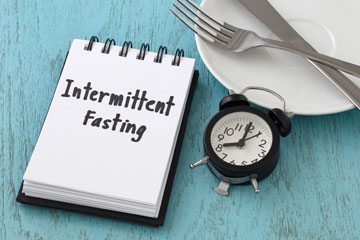
People are becoming more and more health conscious and constantly seeking different methods to stay fit and healthy. There are a wide variety of workouts and diets for burning excess fat and improving metabolism. From plant-based diets, and low-fat diets to low-carb diets, fitness experts have come up with many options to improve a person’s quality of life and lower disease risk. One of the most popular options today is intermittent fasting.
Unlike other dietary trends, intermittent fasting specifies when you should eat rather than what you eat. Intermittent fasting is a time-restricted eating pattern which involves switching between fasting and eating on a schedule basis. The main goal of this pattern of diet is to reduce number of calorie intake to lose weight. This dietary plan improves metabolism, promote weight loss and also protects from different diseases. Studies have found that it is an effective solution for obesity. Intermittent fasting can be done is seven different ways:
- 12 Hour Fast: This simple method is the best option for beginners. In this method, out of 24 hours in a day, you dedicate 12 hours a day for eating and rest for fasting.
- 16:8 Method: Also known as Leangain diet, this method involves, fasting for 16 hours a day, leaving the remaining hours for intake of foods and calorie-containing beverages.
- Fasting For 2 Days A Week: This is also known as fast diet or 5:2 diet. You can eat a standard quantity of healthy food 5 days a week and fast on the remaining 2 days.
- Alternate Day Fasting: Here you fast on alternate days. On the fasting days, you have two options: to avoid solid food completely or limit the intake to 500 calories.
- Fasting For 24 Hours: This is also known as the eat-stop-eat diet. You fast for 24 hours at a time. You can drink water, tea and other calorie-free drinks during the fasting window.
- Meal Skipping: Like the 12-hour fast, this method is also suitable for beginners. In this method, you skip meals occasionally based on your hunger level.
- Warrior Diet: This is considered the extreme form of intermittent fasting. In this type of diet, you can fast for 20 hours a day and consume healthy food the remaining 4 hours.
| To learn more, read DIFFERENT METHODS OF INTERMITTENT FASTING FOR WEIGHT LOSS |
Though intermittent fasting is popular, it comes with pros and cons and it’s important that you know about them before going ahead with this diet plan.
Pros And Cons Of Intermittent Fasting
Helps reduce weightImproper intermittent fasting may lead to weight gainImproves metabolismSkipping meals can cause headaches, nausea, dizziness, etcHelps lower cholesterolCan cause eating disordersPrevents over-production of insulinHard to stick to long termImproves heart healthMay affect social lifeBoosts brain health and functionIncrease risks for negative health consequencesMaintain cell health and functionReduces physical activitiesCan increases life spanNot a good option for those with health issuesLower disease riskCan lead to overeatingEasy to maintainNo limitation in macronutrientsHelps maintain glucose level
| Pros | Cons |
Carefully weigh the pros and cons if you are considering intermittent fasting or any other kind of diet. Importantly, consult your doctor before you begin.

